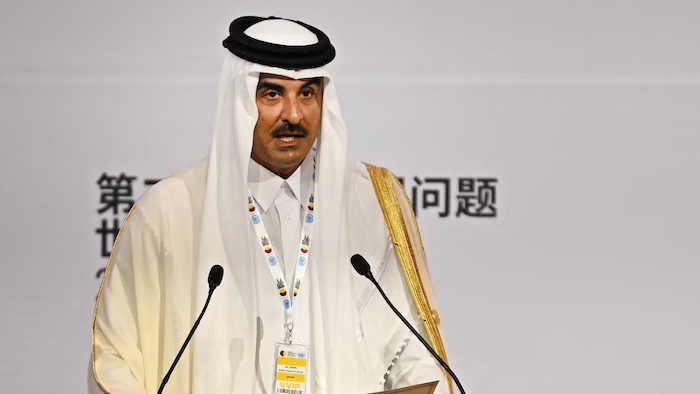
Qatar’s Emir Sheikh Tamim bin Hamad Al Thani has condemned the atrocities committed against civilians in al-Fashir by the paramilitary Rapid Support Forces (RSF), as fighting intensifies in Sudan.
Speaking on Tuesday in Doha at the opening of the Second World Summit for Social Development, Sheikh Tamim said, “I cannot conclude this address without pointing to our collective shock from the horror of the atrocities that have been committed in the city of al-Fashir in Sudan, and our deep condemnation of it.”
The RSF captured the capital of North Darfur state from the army just over a week ago after an 18-month siege that cut off the delivery of food and other essential supplies. Reports from the city have alleged summary executions, massacres, sexual violence, attacks on humanitarian workers, looting, abductions, and forced displacements carried out by RSF fighters.
While the RSF has denied committing any atrocities, testimonies from fleeing residents, online videos, and satellite images depict an apocalyptic scene following their assault.
On Tuesday, a UN-backed global hunger monitor confirmed famine conditions for the first time in al-Fashir and the southern city of Kadugli.
Sheikh Tamim further stated, “Sudan has been living the horrors of this war for two-and-a-half years. And the time has come to stop it [the war] and to reach a political solution that guarantees the unity of Sudan, its sovereignty, and territorial integrity.”
Residents of al-Fashir continue to flee the city, heading to overcrowded displacement camps in nearby towns where food and resources remain scarce.
Fighting between the RSF and the Sudanese army has also intensified in other parts of the country, notably in the central Kordofan region.
United Nations Secretary-General Antonio Guterres warned that the war between the RSF and the Sudanese army was “spiralling out of control” and urged both sides to agree to an immediate ceasefire.
Since April 2023, the civil war between the two forces has killed tens of thousands of people, displaced millions, and triggered one of the world’s worst humanitarian crises.
Faridah Abdulkadiri



